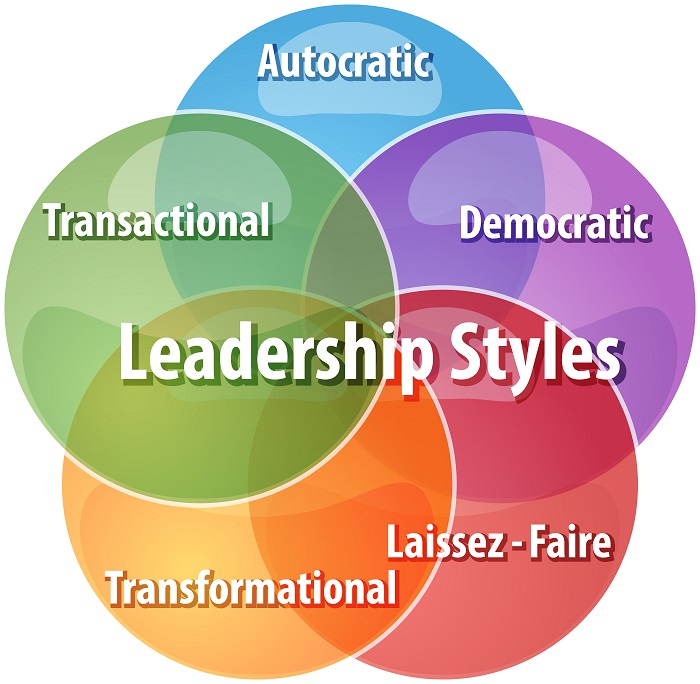
 Data Structure
Data Structure Networking
Networking RDBMS
RDBMS Operating System
Operating System Java
Java MS Excel
MS Excel iOS
iOS HTML
HTML CSS
CSS Android
Android Python
Python C Programming
C Programming C++
C++ C#
C# MongoDB
MongoDB MySQL
MySQL Javascript
Javascript PHP
PHP
- Selected Reading
- UPSC IAS Exams Notes
- Developer's Best Practices
- Questions and Answers
- Effective Resume Writing
- HR Interview Questions
- Computer Glossary
- Who is Who
What are 7 Types of Management Style: Pros & Cons?
Managers are the tool of the management body of any organization. Employees have different experiences with their bosses; some are bossy, some are friends, some encourage often, and some hardly interact. As there are variations in people, bosses are also not similar. However, managers play a crucial role in an employee's professional life. We will discuss the seven management types and their advantages and disadvantages.

The work culture of organizations varies as the management body sets the rules. In this case, freshers may have gone through several learning phases regarding communicating with their boss and implementing his orders. However, every manager has a few professional ethics which help them connect with the organization's vision and goals. Employees need to understand the core purpose of the management body and act accordingly. Managers are the leaders who lead their teams while bringing a positive impact to their professional lives.
Let's discuss the seven management styles freshers and experienced employees encounter at their workplaces.
7 Types of Management Style Including Pros and Cons
Pacesetting
If you join any product base company or manufacturing industry, you may encounter a Pacesetting manager. This variant believes in action and quick results. A pacesetting manager can create high voltage working culture focusing on target goals and how quickly and effectively you can achieve them. They're setting goals by jumping into the actions and pushing employees to follow the same. Freshers, however, feel a little uncomfortable if they're slow runners.
Pros
This breed can touch the goal quickly
Employees will get highly energetic, dynamic, and engaging boss
Employees can learn how to beat competitors and stay ahead
Cons
Burned-out employees can't sustain this work culture if they are slow pacers
Fast running often leads to mistakes that can delay the achievement
Autocratic
Autocratic managers are often called the not-so-friendly yet not-so-harsh category. This breed believes in achieving the target goals by focusing on the results. They set an action plan to achieve the target with his trusted peers. Their expectations are high. In the healthcare industry and construction, Autocratic managers are the best fit. Further, effective management sets up the proper guidance for their employees so that all achievable goals should be clear.
Pros
Employees can experience effective decision maker in less time consuming
They can set clear guidelines for every project
They offer learning opportunities for the freshers
Cons
Grouping among the team can break the confidence of other employees
Employees won't come spontaneously to this category
Democratic
Democratic management style encourages employees from the bottom line to the seniors. This category puts problems in the discussion table and asks for a solution from everyone. They believe in a thorough process to involve every team member and get their input before bringing the official course of action to the table. Like democracy led by everyone and for everyone, this management style is effective for any organization that wants to run successfully and join hands with everyone in the company.
Pros
This category emphasizes on team works
The collaborative decision often get the success
This category nurtures creativity in the team
Cons
The decision-making process may take longer than usual time
Often create mixed opinions about the involvement of all the employees

Coaching
Like a coach offers guidance and counseling for weak learners, the Coaching management style follows a similar tone. This category prefers to provide advice, nurture employees' strong aspects, and helps to overcome the fear and hurdles to face the industry challenges. They maintain regular feedback and motivated words and assign the project to secure growth prospects. They behave with the employees like mentors and develop the overall performance of the team and individuals.
Pros
Create an encouraging working atmosphere and every team member feels to prove themselves
Promote positive employees growth
Nurture skill building for the team and individual member
Cons
Not a good match with experienced employees
Often delay projects due to more concerns about employees' whereabouts
Affiliative
Affiliative management encourages teamwork with slow and fast-pacing employees. This category always stretches hands to help the team members during their hard times. During the decision-making process, they believe in counting everyone's opinion yet reserve the final words for him. The affiliative management style focused on employees' mental and professional health and was ready to encourage overall growth.
Pros
Employees enjoy having mentors at the workplace for the necessary encouragement and motivation
There's no room for employees conflicts
Employees' well-being is the top priority here
Cons
Concerns kill the productivity
More focused on individual growth, less on team
Transformational
Transformational management style is effective in setting larger goals with a higher vision. This category emphasizes the overall growth of the organization with the teams. Transformational management encourages and motivates employees to leave their comfort zone and create a unique approach for future prospects. Goals and achievement are the top priority for this category. This management leadership is effective in a fast-growing organization, restructuring the corporate and high-risk business.
Pros
Future vision gets the top priority; hence, company growth is inevitable
Value the company and the vision
Focused on achieving the target
Cons
Not employees friendly
No room for encouragement or motivation for slow pace employees
Delegative
A delegation management style or laissez-faire is appropriate for self-designed employees who can manage independently. However, this category offers minimum support for overall employee growth. Allow employees in decision-making and make room for discussion. Employees with previous sound experience with good track records are ideal for dealing with such managers. However, the Delegative management style focused on the company's growth, not harming employees' values but engaging them in creative thinking.
Pros
Support the strongest employees
Better match with experienced employees
Thrive to take the company to the top
Cons
Roles in employees' professional growth are not clear
Not perfect for overall team performance steadily
The above-noted management styles might encourage you to select the category you want to be in the coming days of your career. You must obtain certain skills if you're new in the industry and want to be a manager. With these skills, you can choose which category you wish to fall into. Here are the tips to be a better manager.
Tips on How to be a Good Manager
If you're about to join your company as a manager, you must keep the following tips in mind
Understand Your Position
A manager's post is important and adds value to the company. If you join a company that needs specific goals to sustain itself in the market, your action plan must follow a delegative management style. And if the company is already established and has earned goodwill, you must develop a democratic or coaching management style.
Sense the Employees' Skill
Your employees are your strength and help develop a strong team. Developing observation power and identifying each member's strengths and weaknesses make you a better manager.
Understand the Company Goals
Once you understand the company's goals, you can chalk out your plan of action that helps to communicate with your team effectively.
Identify Yourself
According to your personality and attitude, you can adopt any management style but remember whether there's a need. You can be a good manager with your spontaneous skill and ch personality.
Conclusion
Among all the management styles, Transformational and Democratic are the best ones that employees prefer to work under such personality and attitude. Their enthusiasm, encouraging attitude, seeking input while making decisions, and motivated employees make them popular in the company. Their temperament is so contagious that even employees feel connected with similar goals and effectively help the company's growth.

